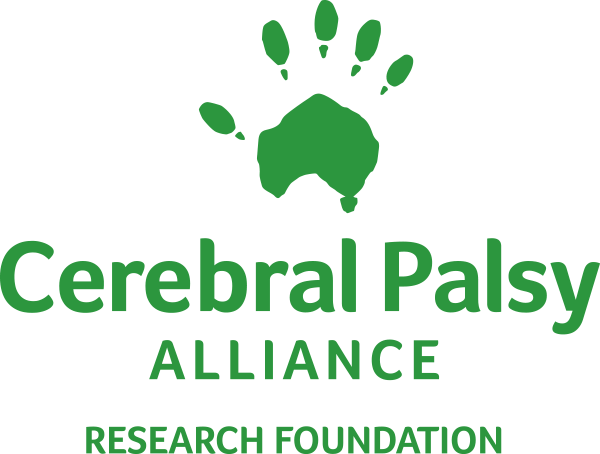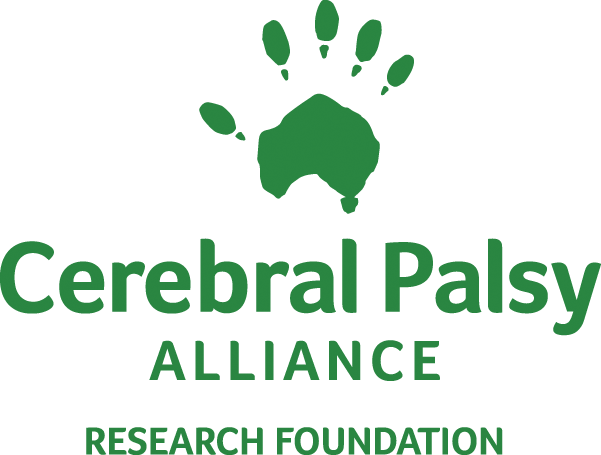World-renowned scientists lead CPARF’s grantmaking process.
Each impressive in their own right, their collective expertise spans regenerative medicine, neonatology, pediatric neurology, neuroscience, physical therapy, occupational therapy, and more.
Members of CPARF’s Scientific Advisory Board have collectively published nearly 500 articles in prestigious journals, including the New England Journal of Medicine and the Journal of the American Medical Association. The team also features a Fulbright Scholar and Australia’s first Chair of Cerebral Palsy.
Together, we are poised to reshape the cerebral palsy research landscape.
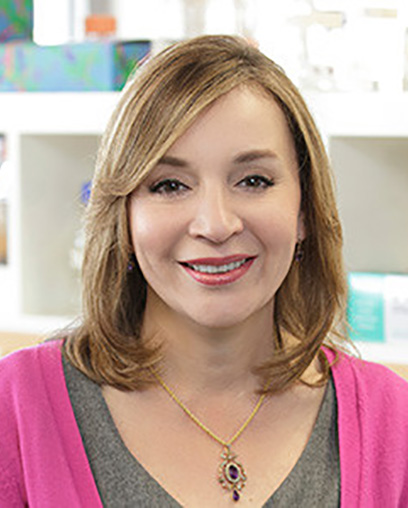
Professor Nadia Badawi AM
PhD, FRACP, FRCPI, MSC
Professor Badawi AM has devoted her professional life to the care and well-being of babies in newborn intensive care and people and families with cerebral palsy. She is an internationally recognized expert on newborn encephalopathy and cerebral palsy.
She is the Chair of Cerebral Palsy Research at the Cerebral Palsy Alliance Research Institute, which is dedicated to the optimizing the prevention and management of cerebral palsy internationally, including special area work with assistive technologies and regenerative therapies for CP. In this role, Professor Badawi has helped found the Australian National CP Register, the International CP Genomics Consortium, and has been on the ANZ CP Strategy working committee that is currently developing consensus objectives for the field of cerebral palsy. She is involved in the X-cellerate stem-cell consortium and has extensive international collaborations.
Professor Badawi is a member of the steering group of IMPACT for CP (International Multidisciplinary Prevention and Cure Team for Cerebral Palsy), and has co-chaired 10 International Cerebral Palsy Prevention and Cure Summits.
She has also supported the establishment of both Cerebral Palsy Alliance Research Foundation in the USA and CP registers in low-to-middle income countries such as Bangladesh and Vietnam. In addition to her publications on neonatal intensive care, Professor Badawi is ranked as the fourth-highest published CP researcher worldwide and has received prestigious awards including a Member of the Order of Australia.
She is listed as one of the “100 Australian Women of Influence” and is listed as one of Australia’s most highly-respected researchers in the NHMRC publication “Working to build a Healthy Australia: Australian Research that’s changing the world.”
Professor Badawi is also a neonatologist, the Medical Co-director of the Grace Centre for Newborn Care and a member of NICUS Managers Group. She has been a leader in changing developmental follow-up procedures for all infants who have surgery, and continues to be involved in the the Australian and NZ Neonatal surgery network. The Newborn Encephalopathy study, her PhD project, remains unique in the world literature with the results extensively cited on over 2000 occasions.
A joint publication on Neonatal Encephalopathy and Cerebral Palsy, from the American College of Obstetricians and Gynaecologists and the American Academy of Pediatrics, cited her papers as the “best available evidence” on neonatal encephalopathy. She is also one of the authors of the three highly cited international guidelines for Early Detection, Early Intervention and Prevention Strategies.
Professor Badawi has given 127 international and national keynotes or conference chairs, over 240 international presentations, obtained research grants over $50M, philanthropic grants over $20M; published 265 peer reviewed journal articles, 12 book chapters, and 105 reports and media interviews. Because of her clinical, research and mentoring work she has been recognised as a Distinguished Professor at Sydney University.
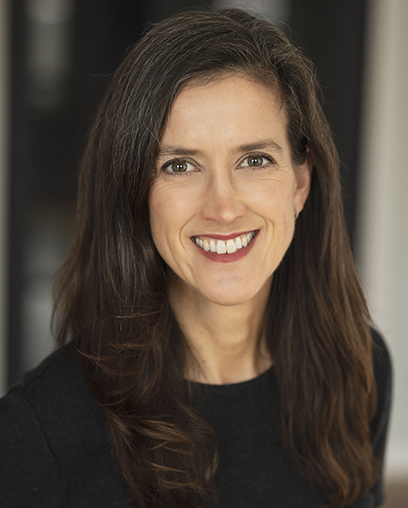
Dr. Bernadette T. Gillick
PhD, MSPT, PT
Dr. Bernadette Gillick is a Neuroscientist and Pediatric Physical Therapist, and Associate Professor at the University of Wisconsin-Madison within the School of Medicine and Public Health. Dr. Gillick is Director of the Waisman Center Pediatric Neuromodulation Laboratory overseeing neuromodulation and neuroimaging research across the lifespan from infancy to adulthood.
Dr. Gillick’s research focuses on understanding recovery and development after early brain injury and the development of cerebral palsy. Her goal is to identify biomarkers of recovery and create novel treatments to improve outcomes during infancy and for a lifetime. Dr. Gillick has extensive National Institutes of Health funding, including multiple R01 awards investigating infant stroke and neurorecovery.
Dr. Gillick has served as Director on the International Alliance of the Academies of Childhood Disability COVID-19 Task Force, Chair of the Research Committee for the American Academy of Cerebral Palsy and Developmental Medicine (AACPDM), and member of the Scientific Advisory Committee for the Cerebral Palsy Foundation. Dr. Gillick has published in over 50 peer reviewed articles, and has served as a grant reviewer for multiple entities including the National Institutes of Health, the Cerebral Palsy Alliance Research Foundation (CPARF), and the AACPDM.
Dr. Gillick’s funding awards include the National Institutes of Health, the Cerebral Palsy Alliance Research Foundation, the AACPDM, and the Foundation for Physical Therapy. She is a National Institutes of Health Fellow in Behavioral Clinical Trials and has been recognized by multiple awards including the AACPDM 2021 Mentor of the Year, the Eugene Michels New Investigator Award by the American Physical Therapy Association and a McKnight Land Grant Professorship. Dr. Gillick also serves as Director of the University of Wisconsin Department of Pediatrics New Research Investigator Initiative, integrating her dedication to mentoring over 100 trainees in the field of childhood-onset disabilities.
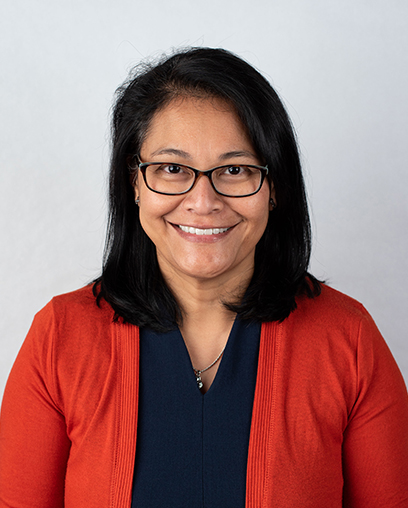
Dr. Beena Kamath-Rayne
MD, MPH, FAAP
Beena Kamath-Rayne is a neonatologist and global health professional with expertise in neonatal resuscitation and medical education. She currently serves as the Vice President, Global Newborn and Child Health at the American Academy of Pediatrics where she oversees neonatal global health, clinical skills and resuscitation training, and simulation. She currently practices clinical medicine through Northwestern University Feinberg School of Medicine.
Dr. Kamath-Rayne received B.A. degrees in Biological Anthropology/Anatomy and History at Duke University and her M.D. at Georgetown University. She completed her pediatrics residency and neonatal-perinatal fellowship training at University of Colorado Health Sciences/Children’s Hospital of Colorado, and then spent 10 years practicing academic medicine at Cincinnati Children’s Hospital Medical Center. In between her residency and fellowship training, she spent two years living and working abroad as a general practitioner in a clinic in rural Ecuador and as a neonatal registrar/fellow at the Children’s Hospital of Westmead in Sydney, Australia. She earned a Masters of Public Health from the Colorado School of Public Health and is currently board certified in General Pediatrics and Neonatal-Perinatal Medicine.
Dr. Kamath-Rayne has expertise in clinical research and quality improvement which has earned her funding from NIH, Cerebral Palsy Alliance Research Foundation, AAMC, Gates Foundation, among others. Recently, her research has focused on the educational and clinical outcomes after implementation of Helping Babies Breathe, a global curriculum for neonatal resuscitation. Before joining the AAP, she was the Associate Editor for the 2nd Edition of Helping Babies Breathe and more recently participated in a technical working group to transition HBB to the new World Health Organization Essential Newborn Care Course, 2nd Edition. She has served as a member of the International Liaison Committee on Resuscitation Neonatal Delegation since 2016. Her over 80 publications address a variety of topics affecting neonatal and pediatric health outcomes. She has successfully built teams of collaborators from a variety of disciplines including obstetrics, pediatrics, infection control, biostatistics, simulation, medical education and more.
She lives in the northwestern Chicago suburbs with her husband and three sons, one of whom has a disability.
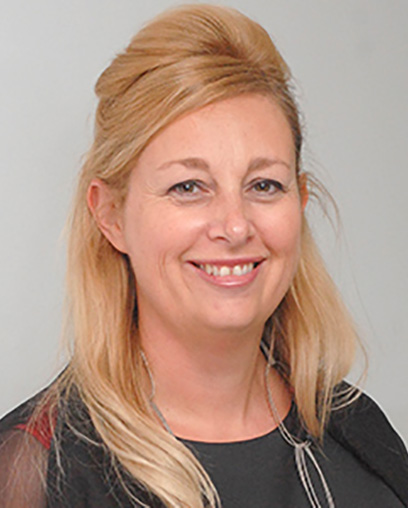
Professor Iona Novak
PhD, MSc (Hons), BAppSc
Professor Iona Novak is the Cerebral Palsy Alliance Chair of Allied Health and co-founder of the Cerebral Palsy Alliance Research Institute. The main objective of her research is to discover, test and translate new treatments, in priority areas identified by people with cerebral palsy. Professor Novak is a Fulbright Scholar focused on conducting a research program of neuro-protective, neuro-regenerative and neuro-rehabilitative clinical trials.
She has significant track record in generating and translating new cerebral palsy intervention knowledge, including: 1) Conducting numerous Randomised Controlled Trials and Systematic Reviews in the areas of early intervention, pharmacology, home-based training, motor training, stem cells, neuroprotection, orthoses, and knowledge translation; 2) “Big data” establishment and analysis: she is co-founder of the Australian Cerebral Palsy Register, the largest whole-country register worldwide; 3) Building collaborative research networks: she established “XCellerate” an Australian-American Stem Cell Clinical Trials Translation network, and has co-chaired 7 International Prevention and Cure Summits; and 4) Translating research into practice, conducting RCTs on evidence uptake. Her work in evidence-based practice has led to changes in clinical care in 24 countries.
Professor Novak conducts clinical research into effective interventions for people living with cerebral palsy, including evidence-based practice initiatives and collaborative international and inter-agency research work. She has extensive clinical experience as an Occupational Therapist and holds: a Bachelor of Applied Science (Occupational Therapy) from the University of Sydney; a Master of Science (Hons) and a PhD from Western Sydney University.
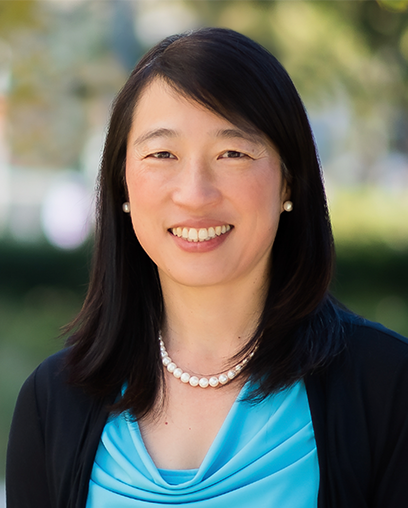
Dr. Yvonne Wu
MD, MPH
Dr. Yvonne Wu is a Child Neurologist and Professor of Neurology and Pediatrics at the University of California San Francisco (UCSF). Dr. Wu’s research focuses on prevention and treatment of newborn brain injury in full term infants. Her goal is to reduce the rate of long-term neurodevelopmental disabilities resulting from insults to the developing brain.
Dr. Wu is currently Principal Investigator of an ongoing NIH-funded multicenter trial evaluating erythropoietin as a novel neuroprotective treatment for newborn hypoxic-ischemic encephalopathy. She is also PI of a multidisciplinary team studying the use of electronic fetal monitoring in predicting newborn encephalopathy. Dr. Wu serves on the Editorial Boards of Pediatric Neurology and the Journal of Child Neurology. She is a member of the Program Committee of the Child Neurology Society, and has served as an elected member to the Society for Pediatric Research Council. She was appointed to the American College of Obstetrics and Gynecology (ACOG) Task Force that authored the ACOG consensus publication titled Neonatal Encephalopathy and Neurologic Outcomes.
Dr. Wu has published over 80 peer reviewed papers including in high impact journals such as JAMA, JAMA Pediatrics, NEJM, Pediatrics and Annals of Neurology. Dr. Wu’s research has been funded by the National Institute of Health, Cerebral Palsy Alliance, Thrasher Research Fund, Cerebral Palsy International Research Foundation and Gates Foundation. Dr. Wu received her medical degree from Harvard Medical School and her Master in Public Health from University of California Berkeley. She completed her residencies in Pediatrics and in Child Neurology at University of California San Francisco.
